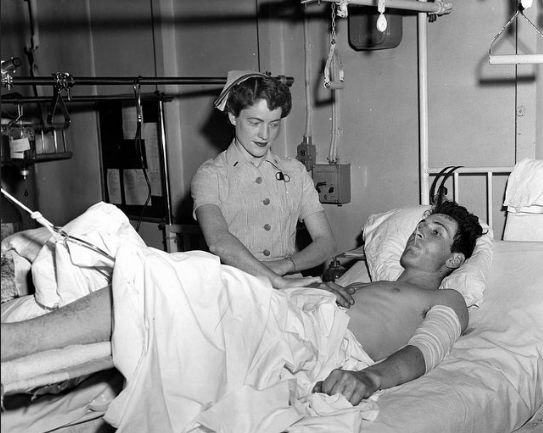By Danika McClure
It’s no secret that a majority of people don’t enjoy visiting the hospital.
In fact, a 2012 Harvard School of Public Health poll found that only half of people who have spent any amount of time in a hospital over the course of the year were satisfied with their quality of care. The other half cited discomfort about mistakes, poor communication, and an unresponsive nursing staff.
Photo courtesy of Flickr
“About a third of respondents say that nurses were not available when they were needed, and another third said that communication was really lacking,” NPR health correspondent Julie Rovner says. “That seemed to be, you know, a fairly pervasive problem, communication between them and their caregivers or between the caregivers who were taking care of them, meaning doctors and nurses, didn't have communication or other aides didn't have good communication. That seems to be a fairly pervasive problem in the healthcare system in general but particularly in the hospital.”
The systemic reasons for this are numerous. But a large reason behind the issue is related to the lack of trained medical professionals. According to the higher education website Find Your Context, nurses and doctors are in demand and in short supply in places all over the country. Rural areas in particular experience a lack of professionals due to what one social work expert labels as the “rural brain drain,” meaning that rural areas of the U.S. are even more desperate to obtain expert medical professionals. In these areas, medical treatment is not only hard to access, but hospital staff is likely overworked and overwhelmed.
While many hospitals still struggle with this, numerous hospitals have managed to find new ways to transform the way they care for patients. Specifically, these models focus on patient advocacy and care, ensuring that their healing experience includes transparency, individualization, recognition, respect, dignity, and choice in all matters when it comes to individual health care.
One such organization, Planetree, was founded by a former patient named Angelica Theriot, who experienced these difficulties at a hospital in the early 1970s.
"She herself became very ill and was hospitalized," the current Planetree President Susan Frampton told NPR. "And while she felt she got good clinical quality care, she was really horrified by the human experience that she had. So she founded Planetree with a very lofty goal: to change the healthcare system to be more patient- and family-centered. And that has been our mission ... for the last three and a half decades."
The current CEO of the company explains their stance further, stating, "We put patients in rooms with gowns that don't have backs on them; we strip them of their dignity; we don't explain things to them. And that's really not what they want.”
Other members of the healthcare community agree that a vastly different model is essential moving forward.
One nurse, who is employed in JFK Medical Center’s stroke unit, notes that having his own medical emergency has transformed the way he now views patient care.
"I learned so much about being a patient all in one session," Philip Castillo said. "I now understand what they're going through." Like many patients whom he had previously treated, Castillo found himself under informed and afraid for himself and his loved ones. “I just wanted to know more. I can’t talk yet, but tell me what happened and why,” he wrote.
What do patients want, and what do they consider good care? According to recent studies, patients appreciate care when they have a personal relationship with their doctors, proper communication, and empathy.
This kind of relationship can drastically affect patient outcomes. In fact, according to the study, “patients who received adequate information on diagnosis and prognosis experienced better symptom relief and functional outcomes.”
With healthcare shortages running rampant throughout the country, it’s clear that quality of care has become a concern for patients and their families. Running on a patient-centered model has been proven to make a difference, and will be the model to look to moving forward.



